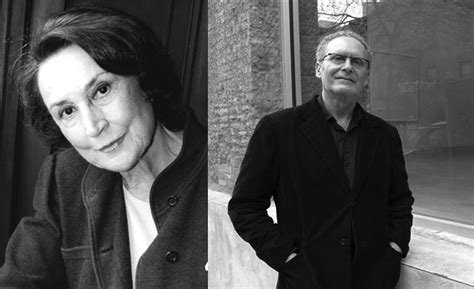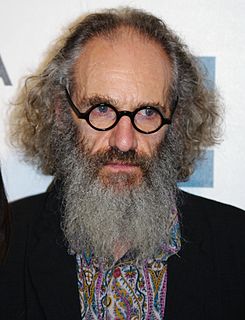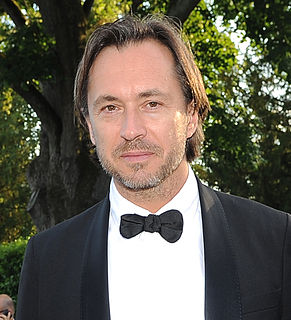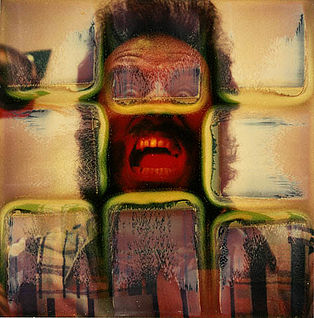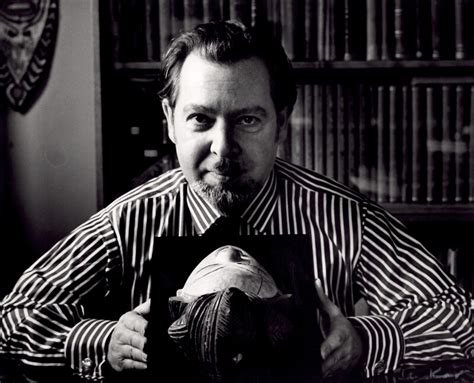A Quote by Margaret Wertheim
Seeing and playing with physical objects can enable access to symbolic ideas. When I studied physics and math at university it was all done through equations and textbooks whereas artists go to art school and start making stuff; they fling paint at the walls, they dance and bash things together with giant bits of metal. Our society has come to think of science as being a very abstractified thing, and art as being a materialized thing.
Quote Topics
Access
Art
Art Making
Art School
Artists
Bash
Being
Bits
Come
Dance
Done
Enable
Equations
Fling
Giant
Go
Ideas
Making
Math
Metal
Objects
Our
Our Society
Paint
Physical
Physics
Playing
School
Science
Seeing
Society
Start
Studied
Stuff
Symbolic
Textbooks
Thing
Things
Think
Through
Together
University
Very
Walls
Whereas
Related Quotes
Cinema is the most challenging art form that you as an artist can create. It's easier to paint a painting because you're very alone. You just have the canvas in front of you and then you do stuff. I'm not saying it's easy to paint, but it's a solitary thing. Whereas movies combine so many different things from pre-production to production, sound design, production designing, leading, organizing, while still being creative.
What's happening in the larger world always influences art. When I first started the gallery in 1959, one of the first things I learned was that most people assume artists know one thing and one thing only - that they were idiot savants. I found very quickly that most artists were very informed and very aware of what was happening in the world around them. So all of those things go together, especially for earthworks. And at that time there was such an intense interest in American art. So there was a great deal of attention paid to where it was going.
Magic is a combination of art and science. It's an art because of the traditional parts of things, the graceful gestures, the sonorous invocations, the use of colour, sight, sound, all of these things make it very much an art form. Yet it is also a science as well because we expect something to come of what we do. Using and creating these almost dreamlike inner landscapes in which we can live, move, and have our being.
I think that a lot of artists have succeeded in making what I might call "curator's art." Everybody's being accepted, and I always want to say, "Really? That's what you've come for? To make art that looks a lot like somebody else's art?" If I am thinking of somebody else's art in front of your art, that's a problem.
What strikes me is the fact that in our society, art has become something which is related only to objects and not to individuals, or to life. That art is something which is specialized or which is done by experts who are artists. But couldn't everyone's life become a work of art? Why should the lamp or the house be an art object, but not our life?
I think it's our responsibility as artists to not only fight for our art but fight for the communities that are the reason we're able to continue making art, especially since, in Brooklyn's case, we as artists somehow made it 'cool' enough for the bigger money-making industries to start taking over.
I studied physics at Princeton when I was a college student, and my initial intention was to major in it but to also be a writer. What I discovered, because it was a very high-powered physics program with its own fusion reactor, was that to keep up with my fellow students in that program I would need to dedicate myself to math and physics all the time and let writing go. And I couldn't let writing go, so I let physics go and became a science fan and a storyteller.
Neither camera, nor lens, nor film determine the quality of pictures; it is the visual perception of the man behind the mechanism which brings them to life. Art contains the allied ideas of making and begetting, of being master of one's craft and able to create. Without these properties no art exists and no photographic art can come into being
If being an anti-art artist is difficult, being an anti-art art historian is a hard position indeed. His doctrinal revolutionism brings forth nothing new in art but reenacts upheavals on the symbolic plane of language. It provides the consoling belief that overthrows are occurring as in the past, that barriers to creation are being surmounted, and that art is pursuing a radical purpose, even if it is only the purpose of doing away with itself.


